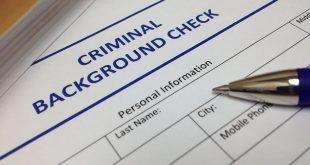 Property repossession continues to rise throughout the United Kingdom every single year. It is estimated that thousands of households nationwide will lose their homes this year because people are struggling to pay their mortgages.
Property repossession continues to rise throughout the United Kingdom every single year. It is estimated that thousands of households nationwide will lose their homes this year because people are struggling to pay their mortgages.
So what are the reasons behind house repossession in UK?
Causes and Effects of House Repossession
One of the primary reasons of house repossession is high level of consumer debt. Many lenders offer unsecured housing loans against a very high rate of interest, which the borrowers find hard to afford. According to the reports of a survey carried out by the government of UK, there were 8,200 repossessions in 2004, and in 2009, the figure jumped to 48,000.
The other reasons include:
- Rising food and energy bills,
- falling incomes,
- unemployment,
- increased economic insecurity
Repossessions therefore, depress the house prices, which in turn reduce the household wealth. House Repossession in UK is also responsible for increasing crime rate and hitting consumer spending. Mortgage arrears worsen your credit ratings. People do not realise that this will increase their cost of borrowing in the future years when they want to buy a home.
None of these effects can be compared to the stress of home loss to the family and the entire community.
The entire process of mortgage repossession explained
What happens in the initial stage?
As a borrower, you must honour your agreement with your lender. If you fail to do so, or even miss out on one of your monthly instalments, you are said to have fallen into mortgage arrears.
To resolve this issue, your lender tries to contact you by phone or by sending a letter. Their only objective is to collect the missed instalments. If, for whatsoever reasons, you are not able to make your payments, the law states that your lender has the right to start repossession proceedings against you.
Due to the global economic crisis, borrowers face a lot of challenges while paying off their mortgage. Hence, the lenders have become a little more lenient. These days, a lender will give you a chance to figure out a ‘payment arrangement’, to get your outstanding debt paid off over a specific time frame. In such a situation, the borrower must not over-commit themselves because the lender will not give you a second chance. If you are having mortgage arrears of more than 3 months or you cannot agree on a suitable payment arrangement, your lender will seek advice of their solicitors.
What does the lender’s solicitor do in the next stage?
The legal representatives of your lender will try to get in touch with you. They normally contact you by letter. They will demand that you repay all the pending mortgage arrears in full in a given period of time. If they do not receive any payment, the solicitor will notify you about the proceedings for repossession.
The solicitor will apply to the County Court and begin legal proceedings and you will be informed about your hearing date. If your lender is able to provide strong evidence that you cannot repay your mortgage arrears, the court will issue a property repossession order. If you do not repay the amount within 28 days, the lender has the right to repossess your home after the stipulated period. After 28 days, if you still continue to stay in your property without repaying the arrears, your lender will apply for an eviction notice. This will effectively force you to leave your home. The bailiffs will see to it that you are evicted from the property.
What Happens When Your House Is Repossessed in UK?
- You lose your home.
- You will have to move out of your property.
- You have to find a new accommodation.
- Your lender will take possession of your house and will sell it for a low price and you will still have to pay your mortgage lender for any deficit if they are unable to retrieve the amount you owe them.
- You name will be registered in the County Court’s register. These mortgage default entries are sent to various credit agencies.
- You will be unable to get a mortgage until the next 7 years or until have cleared all your previous mortgage debt.
- Your name will appear in the blacklist. This will create more difficulties for you even if want to rent a home.
If you are facing repossession because you are struggling with mortgage arrears and you need help and advice, you are not alone. You can stop repossession and all the nightmare that comes after.
Can I Stop Repossession?
Repossession is always a distressing time for a family. The answer to this question is a resounding yes. Even though the repossession order has been served by the court, it’s not necessarily too late to avoid repossession from occurring.
Author Bio
Hannah Stewart is a blogger for Stopping Repossession. Stoppingrepossession.com is a firm in UK that helps troubled homeowners navigate their way through the process of repossession.
